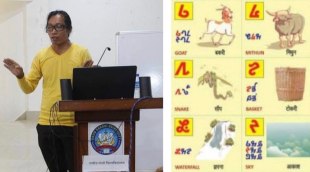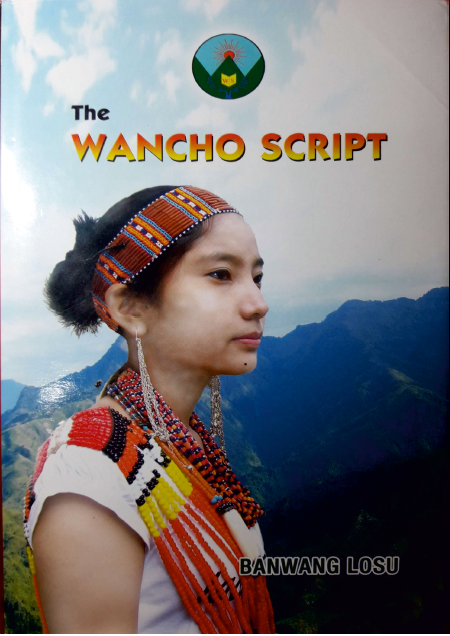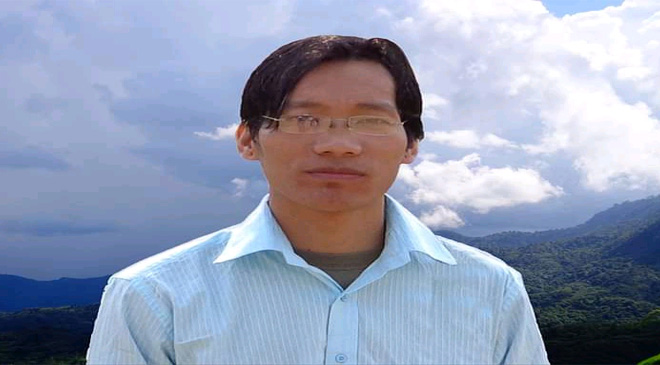Banwang Losu, a researcher in Linguistics at Pune’s Deccan College Post Graduate and Research Institute has developed an independent Wangcho script, in an effort to save the Wangcho language from extinction. Losu, who hails from Arunachal Pradesh, has also got the new Wangcho script enlisted in the US-based Unicode Consortium, which means it can be accessed across the world via the internet.
Also read | K4 Kekho might be small but his words are big
Wangchos are indigenous inhabitants of the Patkai range of the Himalayas. The Wangcho language is spoken in Arunachal Pradesh, Nagaland and parts of Bhutan and Burma. Many tribes of the Northeast who lack scripts for their languages use the Roman script. Therefore, the newly developed Wangcho script by Losu marks an important landmark in the preservation of Northeast’s dying tribal languages.
2019 has been declared as the “Year of Indigenous Languages” by the United Nations, to draw public attention to languages that are in danger of extinction around the world. In India, there are around 197 languages that are on the verge of extinction.
 Image Credit: Indian Express
Image Credit: Indian Express
The Wancho script has 44 letters: 15 vowels and 29 consonants
Speaking to the Indian Cultural Forum (ICF), Losu said it took him almost 12 years to complete his project of developing the independent Wangcho script. “I started taking an interest in phonetics of Wangcho script during my high school. Many tribes use the Roman script. I realised that the Roman Script was not a suitable alternative for tribal languages, since it did not cover many tones, words and phrases. A single word can have multiple meanings in the Wangcho language. The meanings are distinguished as per the tone and pitch of the speaker’s voice. A slight change in tone can result in a different meaning altogether” added Losu.
Also read| Miss Imsong: Choosing satire as activism
He went on to study linguistics after graduation and began his research in the phonetics of Wangcho language, paying close attention to words, phrases and tones not covered by the Roman script. He documented the Wangcho language over several years, with the help of the International Phonetic Alphabet (IPA), an alphabetic system of phonetic notation based primarily on the Latin alphabet.
 Image credit: Tangkhul Online
Image credit: Tangkhul Online
Losu published his book on the Wancho script in 2013
Losu informed ICF that he has taught the script to twenty of his friends, who later volunteered as teachers to promote the language in a local school in Arunachal Pradesh’s Longding district.
Also read | The priest of our old religious system
He added, “Initially, there was no help from the Government in my endeavour to document the Wangcho Script. Although I had been writing several letters to the Linguistic department to promote the Wangcho script, I did not receive any response. After several efforts, I received a grant of Rs. 20 Lakhs from the Deputy Commissioner of Longding district in Arunachal Pradesh.”
 Image credit: India Foundation of Arts
Image credit: India Foundation of Arts
Losu is also the President of Wangcho Literary Mission. Today, with the help of Tata Corporate Social Responsibility and SEWA International, Wangcho Literary Mission has been able to implement the new script in the curricula of around 30 schools in Longding.
Commenting on the preservation of tribal languages, he said “I request the government and people to protect and preserve the rich cultural heritage of tribals in India. Most scholars and researchers currently documenting the tribal culture and practices in India are from abroad who will claim research ownership. If no sincere efforts are taken now, it will be too late to claim what is rightfully ours.”





